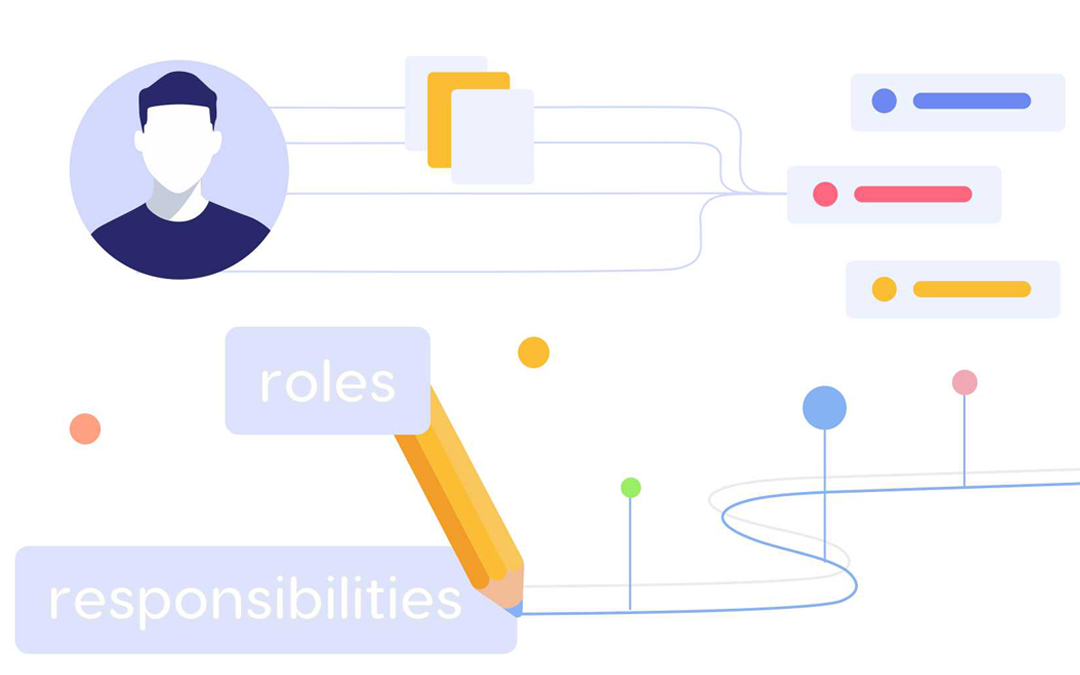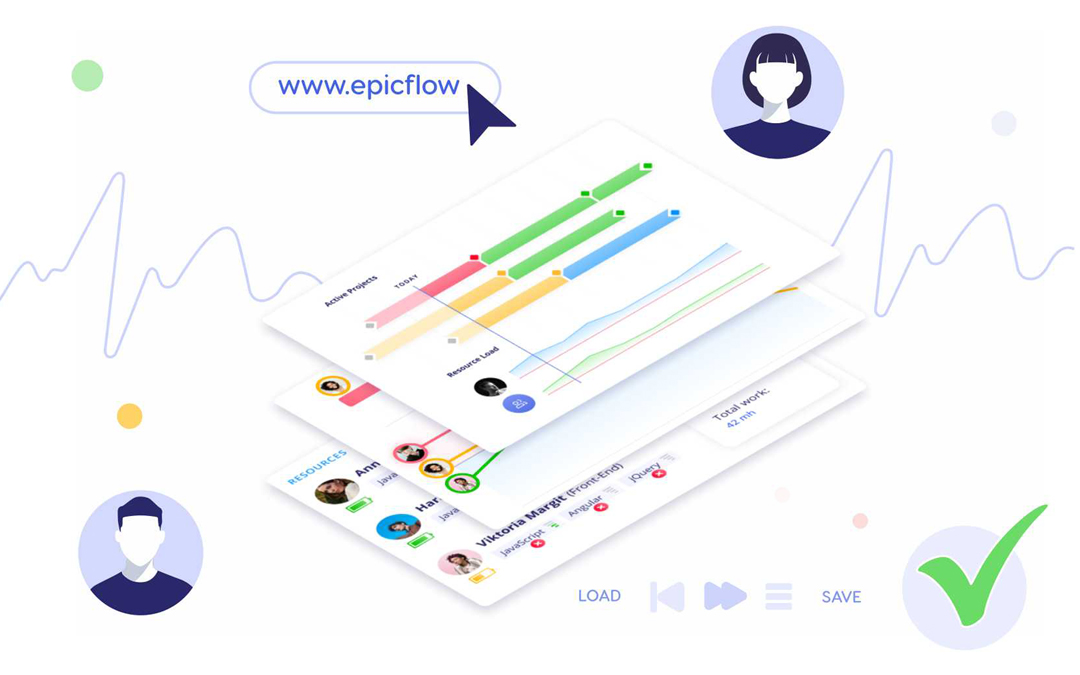Present-day project-based organizations face a continuous challenge to adapt to rapid changes and complex demands. To address this challenge, they need a strong leader who would ensure the successful delivery of projects and initiatives critical for organizational growth and transformation. This is one of the responsibilities of a Chief Project Officer (CPO). Let’s delve into the other roles of a CPO and the impact they have on project-based organizations’ success
Who Is a Chief Project Officer?
A Chief Project Officer is a senior executive responsible for connecting projects, programs, and portfolios with an organization’s business goals and objectives. In contrast to traditional project/program/portfolio managers dealing with individual projects/programs/portfolios, the role of a CPO is more strategic, he or she is a member of the executive board and oversees all project-related activities and their connection with an organization’s business strategy.
A Chief Project Officer can have a significant impact on organizational success: they help organizations achieve their business objectives, drive innovation, and remain competitive in the market. In addition, their focus on effective resource allocation, stakeholder engagement, and change management contributes to enhanced operational efficiency, increased agility, and improved project outcomes.
What organizations require a CPO?
A CPO is mostly required by large and mid-sized organizations whose growth depends on the outcomes of projects they run. Here are some more indicators that your company will benefit from hiring a CPO [1]:
- There’s a lack of visibility into the number of projects in execution, their status, and priorities;
- The number of projects is increasing;
- Silos is hampering the execution of cross-business projects;
- Your employees are overworked;
- There’s no understanding of the expected vs. created value from strategic initiatives;
- Projects are selected, launched, and overseen by more than three executives;
- A company’s executives are in charge of more than five projects and don’t have enough capacity to deal with them.
If at least five of these statements are true for your organization, it requires a chief project officer.
Let’s now review their responsibilities in more detail.
Roles and Responsibilities of a Chief Project Officer
Typically, a CPO has the following responsibilities within an organization.
1. Strategic project leadership
A chief project officer defines a company’s project management strategy and determines project priorities in line with an organization’s long-term vision and objectives. A CPO collaborates with other senior executives to make sure that a company’s strategy is implemented in projects and programs and that there are enough resources and capacity to execute them.
2. Resource optimization
Ineffective capacity planning and running too many projects lead to overloading employees, which in turn reduces their productivity and affects their performance and engagement. One of a CPO’s tasks is to ensure optimal resource allocation across a company’s critical projects. This involves identifying resource requirements, allocating resources based on project priorities, and optimizing resource utilization to maximize efficiency and productivity. Also, a CPO will make sure that a new project won’t be started until there are enough resources for its execution.
3. Promoting change management and innovation
In an era of constant change and disruption, the CPO is the one who drives organizational change and fosters a culture of innovation. They are responsible for executing a company’s change management initiatives, promoting innovation in project management practices, and facilitating continuous improvement.
4. Setting up governance and accountability
The role of a Chief Project Officer involves establishing accountability and governance structures within projects to minimize silos and foster enhanced collaboration. For example, a CPO may initiate forming a project governance committee with the participation of CEO and other senior executives, which would decide which projects are worth investment, and which of them should be terminated or postponed.
5. Monitoring performance and benefits delivery
The CPO is responsible for monitoring project performance, tracking key metrics, and ensuring adherence to project timelines, budgets, and quality standards. In addition, they also make sure that every project meets the established goals and delivers expected benefits.
6. Facilitating project excellence
This task involves establishing best practices, standards, and methodologies for project management, as well as providing guidance and support to project teams to ensure consistent delivery of high-quality results. Also, a CPO makes sure that a company is capable of applying diverse PM methodologies and executing a variety of projects.
Now that the responsibilities of a CPO are clear, let’s review what skills and personal qualities are required for this position.
Requirements For a Chief Project Officer Position
As we can see, the role of a CPO is different from that of a project manager, which requires additional skills. Here are some common job requirements for a CPO.
Education
A bachelor’s degree in a related field (project management, business administration, engineering, or a relevant discipline) is often required. Professional certifications in project management, such as Project Management Professional (PMP) certification from the Project Management Institute (PMI), Certified Associate in Project Management (CAPM), or PRINCE2 certification are also preferable.
Experience
Candidates for the role of a CPO require several areas of experience:
- project management, with progressively increasing levels of responsibility,
- implementing transformations and change leadership (leading change initiatives, promoting a culture of innovation and continuous improvement),
- senior leadership roles, such as Director of Project Management or Head of Project Management Office (PMO).
It’s also essential for a chief project management officer to have a good reputation as a senior leader.
Soft skills
A CPO requires similar skills as a project manager but with a strong focus on leadership and strategic thinking.
Leadership skills
A CPO needs to have strong leadership skills — e.g., the ability to inspire and motivate team members, delegate tasks, and set a strategic direction. Also, they should have experience in managing cross-functional project teams and organizational change.
Communication skills
These skills enable the CPO to negotiate with stakeholders, communicate strategies, resolve conflicts, build strong teams, report the portfolio status, etc. Mastering effective communication not only enhances the CPO’s effectiveness but also drives the overall success of the organization’s project portfolio.
Decision-making
The ability to make informed and reasonable decisions is critical for a CPO. They should be able to analyze complex situations and data, detect problems and develop solutions to them as well as be decisive and take responsibility for the outcomes of these decisions.
Adaptability
A CPO should be able to quickly and effectively adapt to changing conditions, project requirements, and organizational priorities.
In addition to that, emotional intelligence, conflict resolution, collaboration, and strategic thinking are important for the successful work of a CPO. These skills enable them to not only manage project portfolios efficiently but also to inspire their teams and drive the organization towards its strategic objectives.
Hard skills
Expertise in project and portfolio management
In addition to knowing project management methodologies, a chief project officer should be able to manage multiple projects simultaneously, set priorities in line with a company’s strategic goals and resource capacity/availability, analyze essential metrics, and be familiar with portfolio management frameworks and tools
Strategic planning
A CPO should possess strategic planning skills, namely the ability to align project initiatives with overall business goals and objectives. They should be able to develop and implement project management strategies that support the organization’s long-term vision and growth objectives.
Technical skills
A CPO should be proficient in project management methodologies, techniques, and tools used for project planning, scheduling, and tracking. They should also be familiar with project management software and understand technologies that support project management activities (e.g., AI, cloud computing, etc.).
Financial management
A solid understanding of financial management principles and budgeting processes is important for a CPO. They should be proficient in budgeting, cost management, and financial forecasting. It’s also important to be able to perform financial analysis and assess project profitability.
Data analysis
Decision-making is part and parcel of a CPO’s work, they should be able to analyze performance metrics and use data properly to make informed decisions and improve project outcomes.
Therefore, the job requirements for a Chief Project Officer embrace a combination of technical expertise, leadership abilities, strategic thinking, and effective communication skills to drive project success and organizational growth.
As we’ve noted above, a CPO should be proficient in leveraging software tools. Let’s review the capabilities of Epicflow — a resource and portfolio management solution that can simplify and increase the effectiveness of a CPO’s work.
Epicflow Resource Management Software: A CPO’s Reliable Assistant
Epicflow is a powerful tool designed to manage complex multi-project environments. Here are some examples of how the solution helps CPOs in their work.
Optimized resource allocation and management
Epicflow provides detailed insights into resources’ current and future workload, capacity, and availability, helping CPOs allocate resources efficiently across multiple projects and plan them for the future.
Enhanced decision-making
With Epicflow’s What-If Analysis, CPOs can simulate different project scenarios to see potential outcomes before making decisions, minimize risks, and maximize profitability.
Improved project tracking and forecasting
Epicflow’s predictive analytics helps predict project outcomes and resource needs, which enables CPOs to avoid bottlenecks and plan proactively. In addition, Epicflow provides real-time updates on project progress, helping CPOs stay informed and make timely adjustments.
Streamlined communication and collaboration
Epicflow integrates with other project management tools (Jira, MS Project, Oracle Primavera), providing a centralized platform for collaboration on projects. Also, it enhances team collaboration and communication by providing visibility into workflows, milestones, due dates, etc.
Read more: Empower your Jira Environment with Advanced Project and Resource Management Capabilities
Efficient risk management
Epicflow facilitates more effective risk identification and mitigation — the tool detects resource bottlenecks and probable project delays so that a CPO could timely respond to them. By analyzing historical data provided by Epicflow, CPOs can identify patterns and prevent past issues from recurring.
Increased project portfolio performance
Epicflow tracks key performance metrics, enabling CPOs to evaluate project and portfolio performance and implement strategies for improvement if necessary.
Thus, Epicflow supports Chief Project Officers by providing the tools and insights needed to manage resources efficiently, make informed decisions, optimize project portfolio performance, and achieve strategic objectives more effectively. Contact us to learn more about its advanced capabilities to optimize CPO’s work.
Frequently Asked Questions
Let’s summarize the article by answering the questions below.
1. What does a Chief Project Officer do?
A CPO oversees a company’s portfolio of projects. They make sure that all projects correspond to the organization’s strategic goals and are executed efficiently and effectively. This includes resource and risk management, monitoring the performance of projects and resources, stakeholder management, technology integration, etc. The role of a Chief Project Officer is crucial in ensuring that a company’s projects are strategically aligned and efficiently executed.
2. What is the difference between a Chief Project Officer (CPO) and Chief Operating Officer (COO)?
A CPO is focused on strategic oversight and effective project delivery. In contrast, a COO is responsible for an organization’s overall operational performance — they make sure that all aspects of the business run smoothly and efficiently. These positions complement each other: A CPO drives project success, while a COO facilitates operational excellence.
3. What is a CPO’s salary?
The salary of a Chief Project Officer (CPO) varies depending on the industry, location, the size of a company, and the individual’s level of experience and qualifications. A CPO’s salary can range from $200,000 to $300,000+ annually in the United States. These figures indicate the high level of responsibility and expertise required for this role.
References
- Antonio Nieto-Rodriguez. (2022). The Rise of a Chief Project Officer. Harvard Business Review. Retrieved from: https://hbr.org/2022/04/the-rise-of-the-chief-project-officer.




